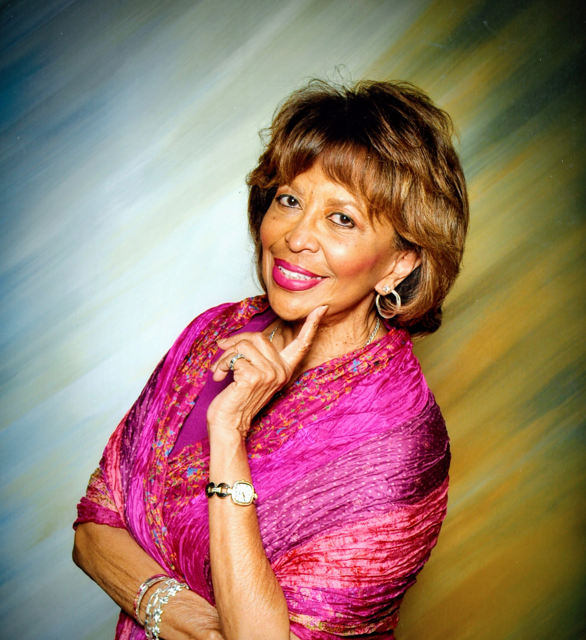My travels carry me all around the world. Yet, even in 2022, I still feel responsible for single-handedly changing the negative stereotype and image of the oft-times “angry” Black American woman. Without exaggeration, I know full well that I am the only Black woman an individual may have seen in real life, or ever will see, and that leaves me with a charge to create an image of us that is beyond stellar.
We are definitely not angry. We are not unkempt (as the local evening news might portray us), nor are we extraordinarily sexual and sex workers (as some countries might depict us). We are respectful, polite, and kind. We smile freely. We are generous. We are phenomenal! And I am adamant about leaving that very impression everywhere I go.
So, I’m generous and tip well—so well that future waiters, porters, drivers, and other hospitality workers will hurry for the opportunity to provide services to the next Black woman. I don’t begrudge the bathroom attendant a few coins in exchange for toilet paper or a paper towel. It could make her day, quite literally. There are countries where a person earns less than five dollars a day; a one-dollar tip could be the typical day’s wages in some places. There are no Starbucks around, so surely I can tip my Starbucks money for the culture.
As a language aficionado, I always learn the basic ice-breaker and courtesy words in countries I’ll be visiting. Imagine meeting a Black woman for the first time, and she actually greets you with “Hello” or “Good morning” in your native tongue. “Please” and “Thank you” are also a must. I remember my first morning in Athens, Greece, after a waitress poured me a cup of coffee, I said thank you in Greek (or, phonetically, “F-Harry-Stoe”). She stopped in her tracks, smiled profusely, and started chattering on in Greek. She was so honored, and I felt good knowing I’d done it for the culture, our culture, that’s been maligned throughout the world and in this current era.
Between messages from my Black mother (the kind of brainwashing typical of the 50’s), Catholic school education, Sunday school, and sorority life, I had no other thought than that I was a part of something larger. That it wasn’t all about me; I was representing at all times and needed to be exemplary. When others observed me—just little ol’ me—I always had the feeling that generalizations were being made and myths dispelled based on my actions.
My church would send me as the “delegate” to youth meetings at our annual conference. The burden of being the voice of my church’s youth congregation rested in my shoulders. At the University of Illinois, I was the representative from my sorority on the Panhellenic Council (30+ sororities on campus). Of course, it was imperative that I dressed fashionably, spoke eloquently, and made the sorors proud while impressing other sororities who may have had an image of us based on our modest sorority house.
Then there was an early teaching position where I was one of only two Black women out of a faculty of 120. We both wore dresses and heels to teach every day. Even on spirit Fridays we wore dresses and heels. The female students loved it, and I would receive compliments in the hall—even from students I didn’t know. The other Black teacher and I felt like we made teaching more professional and desirable than the general opinion.
Perhaps the honor of being selected as the representative of the culture was taken more to heart than need be. Perhaps a character flaw. I had an innate desire to leave observers with an enhanced impression of my church, scout troop, sorority, profession…etc. My primary concern was not about my image, but that of the culture I was representing. I was—and I am—part of something bigger than myself.
Representing isn’t a choice. It’s a responsibility. We do it for the culture. Because yes, we are those phenomenal women Maya Angelou talked about. And even though life ain’t been no crystal stair, we are here, now, and letting our light shine. Dazzling them with our Black Girl Magic.
Do you feel a responsibility to represent and create a more positive image of us? What do you do for the culture?
Leave a Comment



Wow, I have felt the very same way, many times being “the only one” that responsibility has become the norm. I love the fact that it is not a burden, but an opportunity for those who have been taught the myths to actually see them for what they are ugly myths. When others have said, you’re different, my response is not in my family. Every one of the women that I share DNA with are articulate, kind, generous and intelligent women that represent the true essence of our beautiful culture. The connection I share with the women of ebony hue is fantastic as well, we can look at each other and just “know”! It’s a connection that forever links us together on a special level.
Very nice article …. I was the first black Supervisor back in the Walt 80’s at my job at Xerox … I stayed suited and booted and still keep in touch with a few of the people. That started my career in in management in corporate America.
I thought you were writing MY life story! The parallels are eerily similar, including my underlying motives and motivations!
It is still so true that we are often the only one to represent ourselves. It is always pleasant when we can use the basics in another country’s language and try to pronounce the person’s name phonetically.
Thank you for the article. Yes, I represent every day. I work in mental health, and I find it is needed to have a voice for my patients.